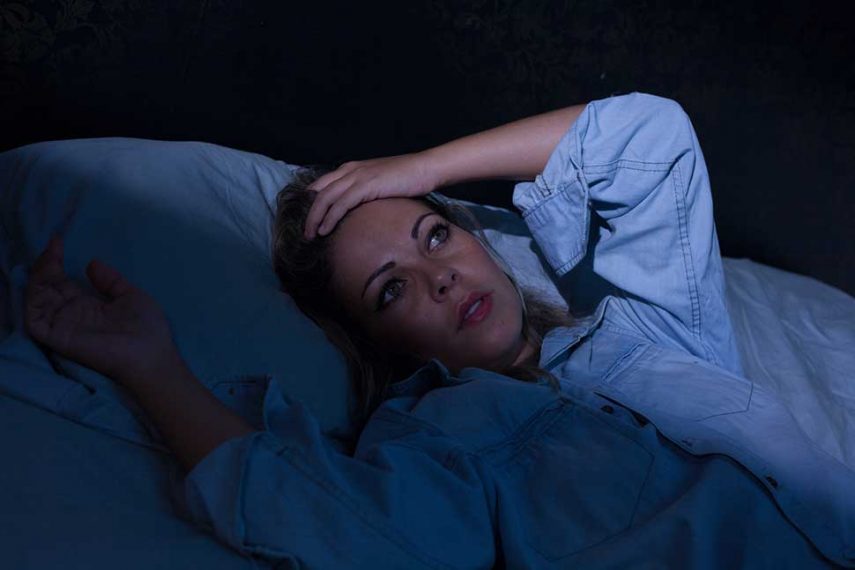Why Is Psychosis Worse at Night? Coping With a Family Member’s Nocturnal Symptoms

Psychosis can be caused by many different sources such as a mental illness, a mood disorder, or substance use. When an individual is experiencing psychosis they suffer a break from reality, causing a range of symptoms, frequently delusions or hallucinations. Receiving a correct diagnosis to identify the type of psychosis and understand the underlying condition is crucial to accurately treat the psychosis symptoms your loved one is experiencing. Finding treatment and support for the individual suffering and their family member is key to recovery.
Coping with a mental health diagnosis that includes psychotic symptoms can be difficult and may cause major disturbances and distress for the whole family.
It is common for individuals suffering from psychosis to experience sleep dysfunction, particularly paranoia and insomnia, which is thought to be a sign of impending psychosis. Falling asleep may be the problem but the time spent whilst sleeping may also cause psychotic symptoms. Nightmares are co-occurring to several diagnoses including psychosis. For those diagnosed with schizophrenia, treating nightmares not only helps with life during the night but may help reduce the psychotic symptoms during the day time as well.
At night time Nadia tends to experience stronger psychosis symptoms related to her Schizophrenia diagnosis, which makes it harder for others in her home. Nadia’s hallucinations are often disruptive, wake the rest of her family, and tend to keep the others in her home from having restful sleep. She hallucinates and hears voices talking to her, sometimes talking back to these voices, sometimes screaming, scaring everyone in the house that something is wrong. If Nadia is able to successfully fall asleep, it is only a matter of time until vivid nightmares happen causing more distress and dysfunction. Her husband now goes to bed every night anticipating a disruption due to Nadia’s psychosis, so even on the nights Nadia does not suffer a psychotic break, he still experiences a restless night sleep.
There is evidence that individuals at high risk for psychosis and those diagnosed with schizophrenia, psychotic symptoms can lead to sleep disturbances and symptom severity. Specifically, psychotic experiences interfere with the ability to sleep well. The resulting daytime tiredness caused by sleep dysfunctions, therefore makes it more difficult for the patient to address their psychotic symptoms.
Another contributing factor to the severity of nocturnal psychosis may be the proper adherence to the patient’s prescribed medication. Discontinuation of antipsychotic medications—especially abrupt discontinuation—will most often lead to a progressive deterioration of the patient’s sleep quality. If an individual experienced insomnia prior to discontinuing their medication, the severity of their ensuing sleep disturbances may be strongly associated with the severity of psychosis experienced.
Tips for Coping With Nocturnal Psychosis Symptoms
Improving sleep quality may lessen psychotic symptoms for those diagnosed with psychosis. You can help your adult child, sibling, spouse, partner or other family member by limiting social functions in the evening to ensure that everyone receives enough sleep.
When you become aware that your loved one is in the middle of a psychotic break be gentle and give them space, avoiding touching. Sometimes the psychosis can be extremely scary, if necessary contact emergency psychiatric help, if your loved one becomes violent or aggressive contact the police, remembering their actions are due to their mental illness, they are not reflective of their true feelings. Finding a residential treatment center is the next best step to ensure any more psychotic symptoms are treated safely and successfully by professional mental health clinicians.
As soon as you start to notice psychosis symptoms you should seek professional help for your loved one. Early diagnosis can help in successful treatment for psychotic disorders, mood disorders with psychotic features, and substance-induced psychosis, and possibly prevent or lessen the effects it has on everyone involved. Recent studies have also shown that cognitive behavioral therapy (CBT) for insomnia may significantly help decrease delusions among patients.
An individual suffering from psychosis may develop these symptoms from several psychotic and mood disorders as well as substance use so the treatment should be tailored to their specific needs. Just as Nadia experiences different degrees of symptoms, her family will have a vastly different experience from another family. No matter what the degree, family members roles in the care management of psychosis are critical for a successful recovery.
Call For a Confidential Phone Assessment.
619-466-0547Family Programming in a Residential Treatment Center
Professional care and support for both the individuals suffering from psychosis and their family members are of the utmost importance for the whole family’s well being. By sending your loved one to a residential treatment center for psychosis you can feel confident that all their symptoms are being examined and treated. During the treatment at a residential facility, you and the rest of your family are encouraged to participate in family programming to better understand your loved one and their psychosis symptoms. In family therapy, our therapists will teach you essential skills you can use to support your loved one during and after active treatment has stopped.
You will also be provided with information for peer support groups to learn how others have successfully helped their loved ones suffering from psychosis.
It is important to be kind and compassionate with your loved one. Caring for them may feel impossible at times but finding a customized treatment plan for your loved that includes care, support, and knowledge for you the both of you will ensure you all find success in treating psychosis symptoms.
Treatment at BrightQuest
BrightQuest Treatment Centers provide world-class residential treatment for psychotic disorders and other complex mental illnesses. We know that choosing the right treatment option for yourself or a loved one is difficult. We believe our unique model of care gives our clients the best chance at success.
- Family Integration in Treatment
- Inclusive Therapeutic Community
- Focus on Lasting Behavioral Change
We offer clients the tools, skills, and support necessary to attain greater stability and independence with the confidence and courage to live a healthy, happy, and productive life.
If you’re concerned about a loved one and believe they may need residential care, we can help. BrightQuest offers long-term treatment for people struggling with complex mental health illnesses and co-occurring disorders. Contact us to learn more about our renowned program and how we can help you or your loved one start the journey toward recovery.






